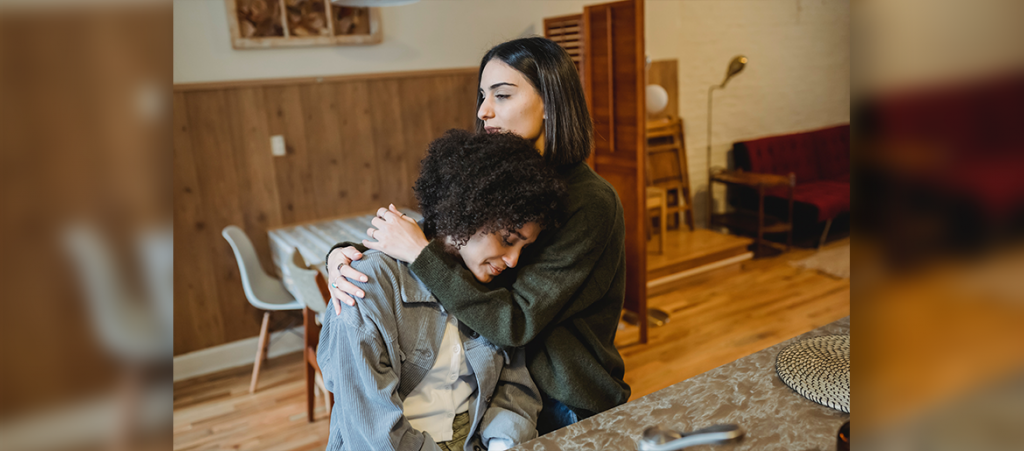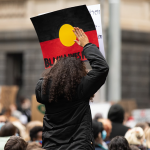
With the supposed rise of ‘cancel culture’ (does it exist, or no?) making an apology – especially a public one – has become something of an artform. Like art, it’s easy to spot a bad, insincere apology. But it can be tricker to define what makes a good apology; something that conveys they really are sorry for the hurt caused, and will try to do better. Where do our own apologies fall on the spectrum: from the plain gross (Lana Del Rey) to the heartfelt (YouTuber Jenna Marbles), or something in-between (comedian Josh Thomas – which he has since deleted from Twitter 🧐).
To try to define what a good apology actually looks like, we asked provisional psychologist Ash King from The Indigo Project for advice on how to make and receive an apology in the 21st Century.
A good apology has 4 important elements
And they are non-negotiables:
- Acknowledge what hurt or harm was caused
- Take responsibility for the harm-causing actions
- Express regret or remorse
- Offer to make amends in a tangible way
Ash explains that arguably the most important element, and what makes an apology feel most genuine, is the acknowledgment of harm: “Esther Perel expressed it well on a recent podcast, saying ‘It’s the acknowledgment of the wrongdoing of the hurt, even if you think you were justified.’”
Because the acknowledgment “involves an element of remorse or guilt,” it’s the part that people often try to sidestep. But that defeats the point of even making an apology in the first place.
“Essentially apologies are a means to repair rifts in relationships and acknowledge that the other person’s feelings and emotional wellbeing is something that matters to us.”
A good apology sends the message that they care about the relationship that was damaged – whether that’s between friends, fans or political constituents. When an apology is slapped together, insincere or given reluctantly, it can be revealing that the relationship is not as important as the other party might think.
Remember: Sorry is an adjective (something you are), apologise is a verb (something you do)… You can apologise without being sorry, but people will notice.
Public and personal apologies require different approaches
For public apologies: be specific about who has been harmed by what you’ve said or done, and address it to them directly. It shows more ownership and feels more meaningful than making a blanket sorry statement.
“Celebrities or brands offering public apologies need to consider who has been impacted and why it truly matters to them. Are they sincerely remorseful for what’s occurred, or is it some half-baked attempt to reduce fallout? For the most part, I think the public are savvy enough to see through disingenuous, self-serving attempts to apologise.”
Ash explains that changed behaviour is also a crucial element of public apologies. You need to tell people a) what steps will be taken to ensure it won’t happen again, or b) how you’ll ‘right the wrong’ by donating funds, uplifting affected voices, etc.
Personal apologies hinge on taking responsibility.
“It shows an effort to acknowledge the impact of our choices or behaviours. Often we invest a whole lot more energy in attempting to avoid responsibility by trying to find fault in the other person’s actions or response.”
Making a good apology to a loved one, friend or colleague means owning your role without tacking on excuses with a “but”.
You’re not guaranteed forgiveness either, and part of making amends with a personal apology is allowing the other party to think it over. “You need to give them space and time to consider your apology, and sit with the often uncomfortable possibility that it might not cut it.”
Ultimately, in both scenarios even a ‘good’ apology might not be enough for others to stick by you in the aftermath – and that’s okay.
“I’m sorry if…” is guaranteed to piss people off
Has an apology that starts “I’m sorry if…” ever sounded genuine?
“It’s the classic blunder we make when apologising, and we do it in an attempt to express doubt over our wrongdoing and save a little face. Acknowledging that we’ve fucked up can be confronting and can cause us to become defensive, which is often a response to bolster our sense of self.”
If you’re tempted to qualify an apology with “if”, Ash recommends pausing to think about what’s more important: preserving your ego, or repairing the relationship (even if the hurt was unintentional)?
If ego is more important, then why bother with the apology at all? Ping: Andrew Laming.
Is an apology enough? How do we hold people accountable?
Here’s the hard truth: we have to take people at their word. ‘Cancel culture’ continues to prove that the accountability we often want to see rarely comes to fruition.
“Essentially we cannot truly hold people accountable,” Ash explains.
“It’s a nice thought, but pressure, manipulation and shame rarely reshape behaviours in positive or sustainable ways. But we can guide others towards taking responsibility and empowering them to change and improve in the future – and this is usually done through engaged, compassionate and emotional connection.”
On a personal level, that means hearing people out and considering their perspective.
“It also means, taking ownership of your own experience without placing the blame wholly on another person and their actions. When provided with a space safe where people feel your intentions are sincere and charitable, people often own their mistakes and take positive steps forward.”
And if it rings hollow, or the positive steps never follow… it’s time to walk away. “You’ve learned about the kind of behaviour you can expect from them in the future.”




